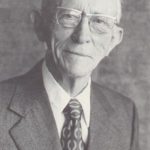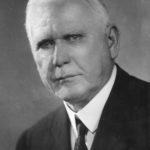Description
Vance Havner Sermons
BLOOD, BREAD AND FIRE
The Christian’s Threefold Experience
Contents
PREFACE. 3
CHAPTER ONE BLOOD, BREAD, AND FIRE. 4
CHAPTER TWO SHALL WE CROWN OR CRUCIFY JESUS? 11
CHAPTER THREE THREE PERILS OF CHRISTIAN DISCIPLESHIP 18
CHAPTER FOUR PLAYING IN THE MARKET-PLACE. 26
CHAPTER FIVE WHAT IS A CHRISTIAN?. 34
CHAPTER SIX NEEDED —A PROPHET. 44
CHAPTER SEVEN WHAT IS YOUR LIFE?” 50
CHAPTER EIGHT AND HE STOOD SPEECHLESS” 57
CHAPTER NINE “ENTERED INTO REST” 63
CHAPTER TEN WHERE ARE YOU AT CALVARY?. 71
CHAPTER ELEVEN “BUT GOD—” 81
CHAPTER TWELVE FAITH IN CHRIST JESUS. 88
Vance Havner Sermons
PREFACE
IN presenting a second set of sermons to our readers, we are endeavoring to gather up chiefly from several Christian magazines, a number of our messages which the Lord has blessed to His glory. In His Name we offer them with the prayer that they may fulfill in some measure the prophet’s responsibility to speak to edification and exhortation and comfort (I Corinthians 14:3).
We gratefully acknowledge permission granted by the following magazines for publication of most of the sermons contained herein:
To Revelation, Philadelphia, for “Three Perils of Christian Discipleship,” “Playing in the Marketplace,” “What is a Christian?” “Needed . . . a Prophet.”
To Moody Monthly, Chicago, for “Shall We Crown or Crucify Jesus?” and “What is Your Life?”
To Light, Hollywood, Calif., for “Blood, Bread, and Fire.”
To King’s Business, Los Angeles, for “But God.”
V. H.
Charleston, S. C.
Vance Havner Sermons
CHAPTER ONE BLOOD, BREAD, AND FIRE
THE Christian life is an experience of blood, bread and fire.
Of all the accusations hurled at the gospel, none is more ridiculous than that it is pale and uninteresting. Of course, we do not expect the natural man to be charmed by it. Unto us who believe and unto us only, is Christ precious. But, contrary to popular notion, the most pale and insipid experience on earth is a life without Christ. The fact is, the unbeliever is dead, and a dead man certainly is not a very colorful spectacle. If sinners are dead in trespasses and sins, and if “she that liveth in pleasure is dead while she liveth,” then every haunt of sin is a morgue and every frolic of the devil is a funeral.
Sometimes we listen to these poor, animated corpses all excited over their little tempests in teapots, chattering away in a “much ado about nothing,” and we wonder how people can talk so much and say so little. The styles, the latest movies, the races, the baseball scores, the latest jokes (most of them a hundred years old)—one listens and hopes that presently they will strike something more serious. But no, they have struck bottom; this is their life. Then we think of the heroes of faith who marched through this earth moving mountains by the might of God, and we could laugh were it not so pitiable—these poor souls who say that being a Christian is such an uninteresting way to live!
But perhaps they got their idea from watching some professing Christians who are terribly poor advertisements of the faith. Certainly if the gospel could do no more for us than some professing Christians have allowed it to do for them, it would be a tame affair. We have sat in some churches through a dreary service, a lifeless round of uprisings and downsittings, and found it hard to think of that assembly following in the train of the early “fools for Christ’s sake,” who upset a world.
Yet we should not judge the faith by its worst representatives. There are many who have proved the Christian life to be what it really is—a mighty experience of blood, bread and fire. When the average man thinks of a Christian, he thinks of churches and choirs, preachers and prayers, perhaps blue laws and Puritanic restrictions. Few think of a Christian as the greatest of miracles, a sinner saved through the blood of Christ, sustained by the bread of Christ, aflame with the heavenly fire.
I. The Christian life is, first of all, an experience of blood, for, however unpleasant it may be to some sensitive souls, the gospel is soaked and saturated with the crimson flood of Calvary. “Without shedding of blood there is no remission of sins.”
The sacrifices of Cain may please the aesthetic, but the gory lamb of Abel found favor with God. We may scribble lovely things on the door-posts, but it is the blood applied that wards off the avenging angel. It is not Christ the paragon, but Christ the propitiation, Who saves from sin. Critics may scorn a “bloody gospel” and “slaughter-house theology”; the blood songs may be taken from our hymnals, and professors may even teach that Jesus was tied to the cross instead of nailed there; but for all that, He still declares to the Greeks who would see Jesus, “And I, if I be lifted up from the earth, will draw all men unto me,” and it is the shed blood of a Calvary Christ, not the idealism of a crystal Christ, that makes the sinner white as snow.
Our redemption is through His blood (Ephesians 1:7).
We are redeemed with His precious blood, not with silver and gold (I Peter 1: 18). He purchased the church with His blood (Acts 20:28).
His blood is the ground of forgiveness, for it was shed for many for the remission of sins (Matthew 26:28).
It is the ground of justification (Romans 5: 9) and our peace, since He made peace through the blood of His cross (Colossians 1: 20).
By His blood we have access to God, for we who sometimes were far off are made nigh by the blood of Christ (Ephesians 2: 13) and we have boldness to enter into the holiest by the blood of Christ (Hebrews 10: 19).
By His blood we have daily cleansing, for if we walk in the light as He is in the light . . . His blood cleanses from all sin (I John 1:7).
This, then, is the way of the cross and of course it is foolishness to the natural man. If Christ had propounded a clever philosophy or preached a lavender-and- rosewater idealism, men would gladly be His disciples, but to live through One Who died and to be saved by One Who could not save Himself, and above all to be saved through the merits of His shed blood— nothing could be more repulsive to the wiseacres of earth. But whether the fastidious like it or not, there stands the word of our God: “When I see the blood, I will pass over you.”
When we come to God convicted of sin and repentant toward Him and receive by faith His Son into our hearts, then the provisions of the blood become effectually ours; we have reached the first phase of the Christian life, the experience of blood.
II. But the blood must be followed by the bread.
After the Passover blood was applied, the Passover Lamb was eaten. Christ is not only the Passover Lamb, Whose blood saves, but also the Passover feast, the bread of life. The Christian life begins with Christ, the slain Lamb of God, and the blood applied. But it continues on the strength of Christ, the Passover feast, as we feed upon Him by faith.
The blood must be followed by the bread, for except we eat His flesh and drink His blood, we have no life in us (John 6: 53). The Lord’s Supper sets forth, among other things, the bread of life, Christ our sustenance as well as Christ our Savior.
The Jews in Egypt ate all of the lamb; Christ in His fullness must be appropriated by faith for every need.
They ate it then, not later; and the time to feed upon Christ is now.
They ate it with bitter herbs; and Christ must be received with a humble and contrite heart.
They ate it ready to travel: the Christian is a pilgrim and stranger and must feed upon Christ as one whose citizenship is in heaven and who is seeking a city and bound for another country.
There was no work connected with the Passover; nor must the believer mix his own works with the finished work of grace. The lamb was eaten with unleavened bread; and so must we purge our hearts of the leaven of sin and wickedness if we are to feed upon Christ. How unworthily do men partake of the Lord’s Supper, which symbolizes our feeding upon Christ! Verily, they drink judgment to themselves and are guilty of the body and blood of the Lord. No wonder many are weak and sickly and many sleep!
But how do we feed upon the bread of life? Our Lord made it clear once for all when He said to those who were puzzled at His teaching: “It is the spirit that quickeneth; the flesh profiteth nothing: the words that I speak unto you, they are spirit, and they are life” (John 6:63).
To feed upon Him is to read and to heed His words, to hear and keep His commandments. If we abide in Him and His words abide in us, we shall ask what we will and it shall be done unto us (John 15:7). If we love Him we will keep His words, and the Father will love us, and the Father and Son will come to us and abide with us (John 14:23). Heaven and earth shall pass away, but His words shall never pass away (Mark 13:31). But whosoever shall be ashamed of Him and His words in this adulterous and sinful generation, of him also shall the Son of man be ashamed, when He comes in the glory of His Father with the holy angels (Mark 8: 38).
Christ, the bread, may seem hard doctrine. It seemed so when He Himself preached it and some asked, “Who can hear it? ” He may have to ask some of us, as He asked long ago, “Will ye also go away?” God grant that we may answer as did Peter, “ Lord, to whom shall we go? Thou hast the words of eternal life. And we believe and are sure that thou art that Christ, the Son of the living God” (John 6: 68-69).
To feed upon the bread, then, is to read the Word of God, to pray over it, to meditate upon it, and then go out to observe and do it. Many Christians who know the safety of the blood do not correspondingly know as they ought the strength of the bread. The blood makes safe: the bread makes strong. The Christian begins his life by coming under the blood for salvation; but he continues by the blood for daily cleansing and the bread for daily food.
III. But still the Christian life is not complete: there must be the experience of fire, the fire of Pentecost, the fire of the Holy Spirit for power in service and testimony.
The early Christians in the upper room had come under the blood; they had fed upon the Word of Christ, the bread, some of them for three years. Yet He bade them tarry until they were fire-baptized. The blood makes safe and the bread makes strong but more is needed for witnessing. And it is just here that thousands of believers fall short with a pre-Pentecost experience. They have been taught that a personal knowledge of Christ is all that one needs, which is true as to salvation, but it is overlooked that these Christians knew the Lord yet they must wait for power.
It is true that Pentecost, historically, took place once for all. So did Calvary. But each individual must personally appropriate the blood by faith and so must each believer receive by faith the Spirit for power. The promise of the Spirit is received by faith (Galatians 3: 14). It is an experience of spiritual thirst, then coming to Christ, drinking of the Spirit by faith, believing and overflowing (John 7: 37-39).
So the blood and bread must be accompanied by fire.
We have fundamentalism and facts; we have activity and earnestness and sincerity; we even have blood-washed and blood-nourished Christians, well-taught in the Word, who still lack fire.
Some are prejudiced against it, identifying any definite experience of the Spirit with fanaticism.
Some see nothing but a gradual growth in grace.
Some mistake the indwelling of the Spirit for the infilling.
Some have “received” with a cheap and easy “believism” who somehow did not receive after all.
For many reasons the church is largely behind closed doors as before Pentecost and believers try to stir up a fire from their own sparks instead of being set on fire of God.
We are not here advocating some wild and weird emotional experience, but we do hold that he who seeks to burn out for God will have to go deeper than sentence prayers and occasional wishful thinking.
There must be a holy heartburn and a consuming longing for the fulness of the Spirit.
Tears and fastings and all night prayers have no value of themselves, but God will reward the man who forgets all else seeking the double portion of “power with God and men.” It is not that God is stingy and must be coaxed, for He “giveth liberally and upbraideth not.” It is that we ourselves are so shallow and sinful that we need to tarry before Him until our restless natures can be stilled and the clamor of outside voices be deadened so that we can hear His voice. Such a state is not easily reached, and the men God uses have paid a price in wrestlings and prevailing prayer. But it is such men who rise from their knees confident of His power and go forth to speak with authority and not as the scribes.
I saw a human life ablaze with God; I felt a power divine
As through an empty vessel of frail clay I saw God’s glory shine.
Then woke I from a dream, and cried aloud: “My Father, give to me
The blessing of a life consumed by God, That I may live for Thee!”
The blood, the bread, the fire—may yours be the trinity of a full experience!
Vance Havner Sermons





Reviews
There are no reviews yet.